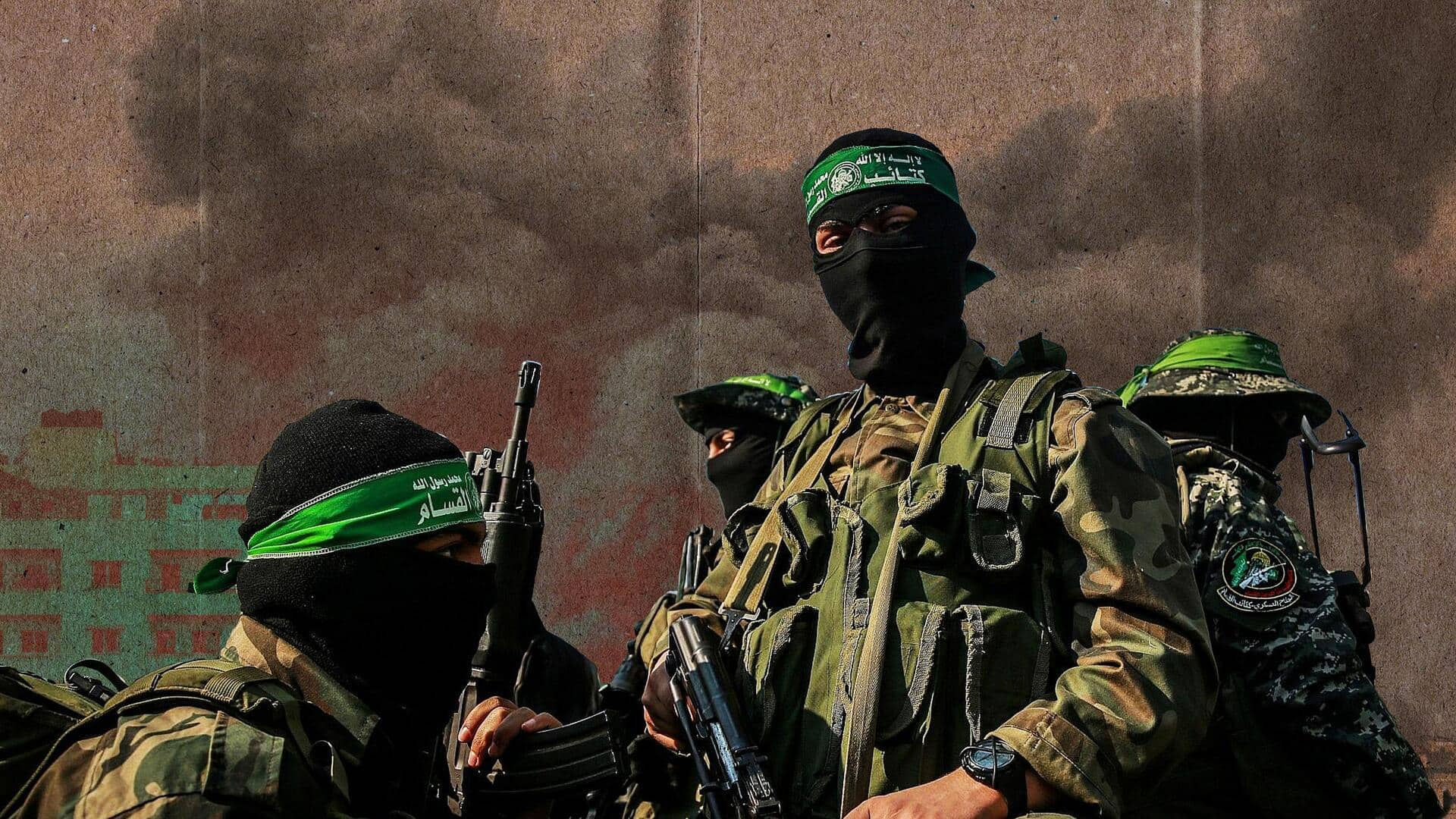
Iran helped Hamas plan attack on Israel for weeks: WSJ
What's the story
Iran allegedly helped Palestinian militant group Hamas in planning its unprecedented Saturday attack on Israel weeks ago, The Wall Street Journal (WSJ) has reported. Officers from Iran's Islamic Revolutionary Guard Corps (IRGC) worked with Hamas since August to create a multi-pronged assault on Israel by land, air, and sea. The attack was discussed during several meetings in Lebanon's Beirut. Iran's Foreign Minister Hossein Amir-Abdollahian, IRGC officers, and representatives of four Iran-backed terror groups—including Hamas and Hezbollah—reportedly attended these meetings.
Context
Why does this story matter?
Reports about Iran's involvement in the war indicate that the Israel-Palestine conflict is not restricted to just their borders. Given the complex relationships between the IRGC, Hamas, Hezbollah, and other regional players, the crisis can potentially lead other countries from beyond the Levant to join in the war. Some geopolitical experts fear this might turn into a world war amid the Russia-Ukraine crisis, as Russia and Iran have already joined hands while the United States has pledged support to Israel.
Details
Strategic objectives behind attack
The WSJ report said the attack on Israel aimed to take advantage of the domestic political chaos surrounding Israeli Prime Minister Benjamin Netanyahu's government. It also sought to disrupt US-brokered talks to normalize relations between Saudi Arabia and Israel, which Iran viewed as a threat. The alleged plan was to "strangle" Israel from all sides—Hezbollah and the Popular Front for the Liberation of Palestine in the north, and Palestinian Islamic Jihad and Hamas in Gaza and the West Bank.
What Next?
Hezbollah-Israel exchange rocket fire
Iran is reportedly shifting its focus from other regional conflicts, such as its ongoing conflict with Saudi Arabia in Yemen, to concentrate on financing and arming militant groups like Hamas and Hezbollah for attacks on Israel. Hezbollah is a Shiite Lebanese militant and political group with close ties to Iran and neighboring Syria's Bashar al-Assad's government. Reuters reported that Hezbollah and Israel exchanged rocket fire, hinting at the former joining the war.
Insights
US says no evidence of Iran's involvement yet
While a spokesperson for Iran's mission to the United Nations claimed that Tehran did not direct the actions of Hamas in Gaza, the report said that senior members of Hamas and Hezbollah confirmed Iran's involvement in planning the attack. US Secretary of State Antony Blinken stated that they have not yet seen evidence of Iran directing this specific attack but acknowledged the long-standing relationship between Iran and these terror groups.
Weapons
How web of geopolitical equations can spur world war
US Republican House Representative Marjorie Taylor Greene has raised concerns about Hamas allegedly receiving weapons for the attack from Afghanistan, most likely left behind by US troops. Reports said Hamas also received American weapons from Ukraine, triggering speculations about Ukraine selling weapons to it. Reportedly, Palestinians also breached the Israel-Jordan border. So, in a worst-case scenario, Israel could bomb Lebanon and Syria, prompting Iraq to attack US military bases. In response, the US might attack Iran, triggering an all-out war.